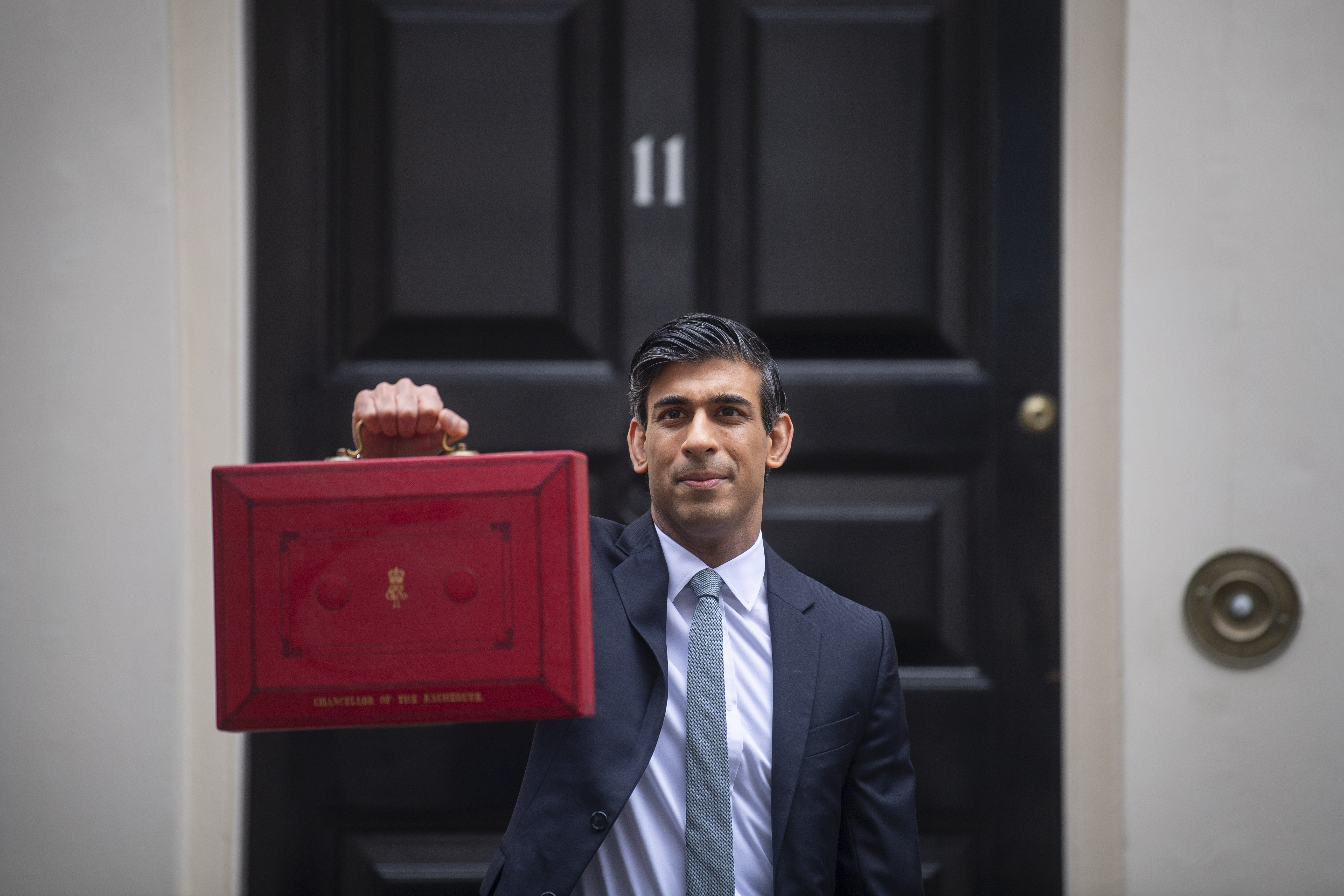Windfall tax on ‘bumper pandemic profits’ and £47bn boost to ‘rebalance’ economy, think tank says
Rishi Sunak is being urged to ‘boost it like Biden’ with stimulus package

The government should tax firms that made “excessive pandemic profits” to help “rebalance” economic power and improve workers’ pay and conditions, a think tank has said.
The Institute for Public Policy Research (IPPR) argues that the Covid pandemic should see an end to widening inequality and mark the “beginning of a new era” where opportunity is shared among all people across the UK.
A one-off windfall tax this year combined with a £47bn boost to the economy is needed to tackle wealth inequality and secure full employment after the pandemic, the organisation says in its report.
It comes a day after a new report from Tax Justice UK shows that Asos and Serco were among six companies across finance, outsourcing, retail, real estate, mining and pharmaceuticals which made £16bn in excess profits during the pandemic.
The profits of one company, the Scottish Mortgage Investment Trust, were up 801 per cent compared to previous years – according to the report ‘Pandemic Profits: who’s cashing in during Covid’.
Tax Justice UK Executive Director, Robert Palmer, has also called on Mr Sunak to consider a windfall tax on excess profits made during the pandemic, as well as increasing corporation tax to 25 per cent, in his forthcoming Budget expected to be announced on 27 October.
Now, IPPR has made its own calls for Mr Sunak to “boost it like Biden” with an economic stimulus designed to achieve full employment, which it said would see “employers compete for workers, rather than workers competing for jobs”.
The think tank said that £30bn should be spent on green projects and £17bn on social infrastructure, such as health and care.
In March, US President Joe Biden signed a £1.4 trillion economic relief bill into law that aims to help Americans impacted by the pandemic in the form of one-off direct welfare payments to most households.
Ahead of the major political parties’ conferences over coming weeks, IPPR argues that a similar measure to direct the windfall tax revenue into a “citizens’ wealth fund” would help “rebalance power” and “spread prosperity” through “strategic” investment.
Returns on the investments could reduce wealth inequality by granting a “universal inheritance” of £10,000 to each 25-year-old born in the UK from 2030, it says.
In outlining the reasons for its proposals, IPPR cited statistics showing that two fifths of workers have had a real-terms pay cut since 2009, and 5.5 million workers are in insecure work – of whom 960,000 are on zero-hours contracts.
Meanwhile, the wealthiest in society have grown even richer especially during the pandemic through an increase in the values of their properties and financial investments.
Between June 2020 and June 2021, the average house price rose by £31,000, equivalent to an average UK salary.
IPPR added that market power and profits are disproportionately concentrated within the top 1 per cent of companies, squeezing out many smaller competitors that have been forced to close down or survive on government funding and loans during successive lockdowns.
A quarter of the smallest firms that have survived have reported that debt repayment costs have risen by at least 20 per cent, the think tank said.
Carys Roberts, IPPR executive director, said: “The UK suffers from concentrations and imbalances of power that are both a cause of some of our economy’s problems, and a barrier to solving them.
“The pandemic must mark the end of this era of growing inequality and the beginning of a new one, in which sharing opportunity across people and places is a core objective of economic and social policy.
“As well as measures to support and grow the economy, such as a significant economic stimulus and long-term investment, shifting power must now be a priority. By speaking to people’s concerns and their disempowerment, these power shifts have the potential to build towards a better economy that works for everyone. We call this economic justice.”
George Dibb, head of the IPPR Centre for Economic Justice, said: “Most people do not want to see the economy go back to how it was working before the pandemic. There is a need for change, and our plan to hard-wire the economy for justice will ensure that the benefits of the recovery are shared with everyone.”
Join our commenting forum
Join thought-provoking conversations, follow other Independent readers and see their replies
Comments




Bookmark popover
Removed from bookmarks